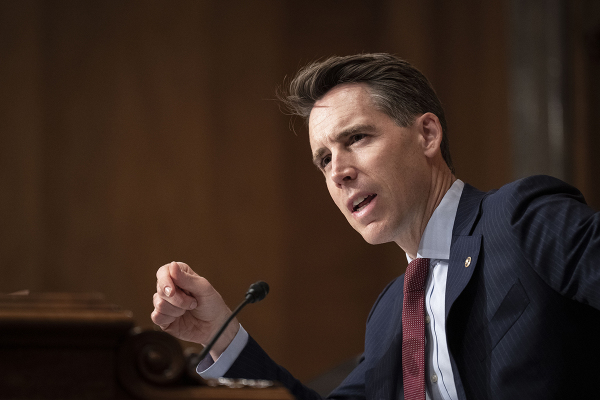Debt Ceiling: GOP House Bill Stopped in the Senate
The House Republican's “Cut, Cap and Balance” bill is “now over, done and dead,” Senate Majority Leader Harry Reid (D-Nev.) said after the Senate voted 51-46 along party lines to “table,” or halt further debate, on the bill.
Cut, Cap and Balance would have cut fiscal year 2012 spending by $111 billion and capped future spending at 18 percent of GDP. It also would have required that both chambers propose a balanced budget amendment to the Constitution before the nation's debt ceiling could be raised.
Cut, Cap and Balance passed the House on Tuesday with 234 Republicans voting in favor of the bill and 190 Democrats opposing the measure.
Treasury Secretary Timothy Geithner has said that the debt ceiling needs to be raised by August 2 to avoid defaulting on debt payments.
Republicans argues that the Cut, Cap and Balance bill should have been passed because it is the only plan currently available. Sen. John Thune (R-S.D.), said on the Senate floor before the vote, “It is the only plan out there.... The President, the Democratic leadership here in the Senate have yet to produce a plan that will meaningfully deal with the greatest crisis that our country has faced..., and that is this massive out of control debt that...could lead to much higher interest rates along the lines of what we're seeing in some of our European countries, which would absolutely crush our economy.”
In an editorial for Human Events on Thursday, Family Research Council President Tony Perkins argued that passage of Cut, Cap, and Balance was a moral duty.
“How Members of Congress vote on Cut, Cap, and Balance will speak volumes about their willingness to accept their moral duty to confront the wave of debt that threatens the futures of our children and grandchildren,” Perkins said.
The Ethics and Religious Liberty Commission of the Southern Baptist Convention (ERLC) also asked its supporters to urge their senators to support the bill.
“If you agree that our government must cut its spending now, limit its future spending to a reasonable percentage of our nation’s annual economic output, and assure this fiscal sanity for future generations through a constitutional amendment that limits spending, then your senators need to hear from you,” Richard Land, president of the ERLC, said in a letter to his supporters.
Some who favor balanced budgets, however, thought that Cut, Cap and Balance, if passed, would have been a bad idea.
If a balanced budget amendment had passed the House and Senate it would still need to be ratified by three-fourths of state legislatures. Due to this, the Concord Coalition, an organization formed to address concerns over our national debt, worried that the Cut, Cap and Balance bill would actually make deficits worse. “A protracted ratification debate in the states could have the unintended effect of delaying enactment of the policies needed to eventually bring the budget back into balance,” warned the Concord Coalition.
Conservative Democrat Rep. Heath Shuler of North Carolina was one of five Democrats to vote in favor of the Cut, Cap, and Balance bill in the House. Nonetheless, Shuler favors the Senate's “Gang of Six” proposal, he told The Christian Post in an interview this week. The Gang of Six proposal has defined cuts, whereas the Cut, Cap, and Balance bill places a cap on future spending but leaves future congresses to decide where spending cuts or revenue increases would come from, according to Shuler.
Another problem with the Cut, Cap, and Balance bill is that even if it had passed the Senate, it still may not have raised the debt ceiling.
The bill says that the debt ceiling would not be raised unless both the House and Senate first pass a balanced budget amendment. The bill itself does not propose a balanced budget amendment. Under the Constitution, proposing an amendment requires at least a two-thirds vote in both the House and the Senate.
That means 290 House members would be needed to propose an amendment. Since Cut, Cap and Balance passed with 234 votes, the House would still need 56 representatives who voted against Cut, Cap, and Balance to vote in favor of a balanced budget amendment before the debt ceiling could be raised.
With the Cut, Cap and Balance bill now rejected by the Senate, Congress is looking at three different possibilities to raise the debt limit by August 2: continued negotiations between President Obama and Speaker of the House John Boehner, a plan being worked on by Reid and Senate Minority Leader Mitch McConnell (R-Ky.), and the Senate's “Gang of Six” proposal.
The U.S. national debt is currently over $14.5 trillion with over $114.7 trillion in unfunded liabilities.





















